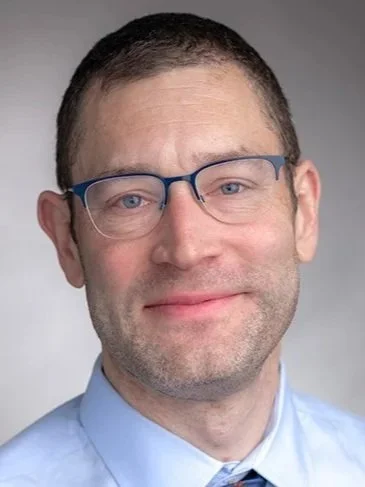Meet the West Health Accelerator Team: Josh Lakin, MD
As a palliative care physician at Dana-Farber Brigham Cancer Center, Dr. Josh Lakin helps clinicians communicate more effectively with patients about what matters most to them — especially as they live with serious illness or face complex medical decisions.
Drawing on his background in finance, systems design and implementation science, Dr. Lakin brings both compassion and practicality to his role as serious illness lead for the West Health Accelerator at Mass General Brigham, where he is helping to shape the “what matters” component of older adult care.
Q&A
Why is the “what matters” component of older adult care so important?
Josh Lakin: When patients are in the hospital, they see a lot of different people and hear a lot of jargon. It can be uncomfortable and it’s even harder if you are sick or older. But when your clinicians know what it means to you to live meaningfully, it’s not only a more satisfying interaction — it’s more efficient and more targeted. Our job as clinicians is to help our patients live as well as they can, for as long as they can. And that starts with talking to patients about what matters to them, rather than just thinking, ‘What’s the matter with you?’
This work is all about reducing patients’ stress from interacting with the health care system while they are managing illnesses and aligning our care to make sure we are walking in step with the people for whom we care.
Why is this such a challenging concept to implement?
JL: At face value, the idea is very simple. Of course, we want to know and care for those we meet as people. The problem is, it’s nebulous in practice. There are a lot of different terms used in health care: advance care planning, serious illness communication, advance directives, end-of-life conversations, goals-of-care conversations. Those are all very distinct communication procedures, but the terminology in the communication space can be confusing. If clinicians are not clear in their communication, patients and their care partners don’t have a good understanding of what we are trying to do.
Where are you at right now with the West Health Accelerator work?
JL: Springboard Studio, a human-centered design team within Mass General Brigham, has interviewed over 60 clinicians and done surveys to get an idea of what our clinicians think the term ‘what matters’ means. What we’ve learned is that it’s so important to them that they get to know their patients and ask what matters — but that they think about it very differently. For some, it’s small talk; for others, it’s getting a health care proxy in place; for others, it’s a deep conversation about goals and values. Now that we have all that data, we’re starting to pilot our initial hypotheses about how to consistently implement a process to ask older adults ‘what matters’ to them.
What led you to a career in palliative care?
JL: I was lucky to kind of stumble into this work. After college, I was a financial analyst and a consultant, and although I loved that work, I felt like there was something missing. I started shifting my career toward health care and ended up going to medical school and becoming a palliative care physician. In this role, I see patients with chronic, incurable illnesses, and during the hardest parts of serious illness. I find it very meaningful to get to know the people I serve and integrating science and healthcare with the personal work of guiding people when they are interacting with our system.
Since joining Dana-Farber Brigham Cancer Center 12 years ago, I’ve done a lot of work teaching about communication, helping clinicians speak more with patients about their goals, their values and how they see living best with serious illness. There aren’t a lot of people like me who are interested in finance and implementation in palliative care, but I love doing clinical work while also getting to work on initiatives like the Accelerator.
What excites you most about the West Health Accelerator?
JL: My hope is that we improve the experience of the people we care for and improve the experience of both serious illness and those left behind, because grief is hard. I hope we improve the clinician experience as well, and help clinicians do what they do best, which is fix what they can fix, and show compassion when they can’t.
I love figuring out where there are gaps in systems and how to fix them. The Accelerator is a huge endeavor that is exactly that. Across the country, there are clinicians and administrators who want to deliver this kind of care, and older patients who want to receive it, but our systems are generally not designed to make it happen. We are redesigning the system so it’s easier for clinicians to provide the right care for the people they serve. And that’s exciting for me.

